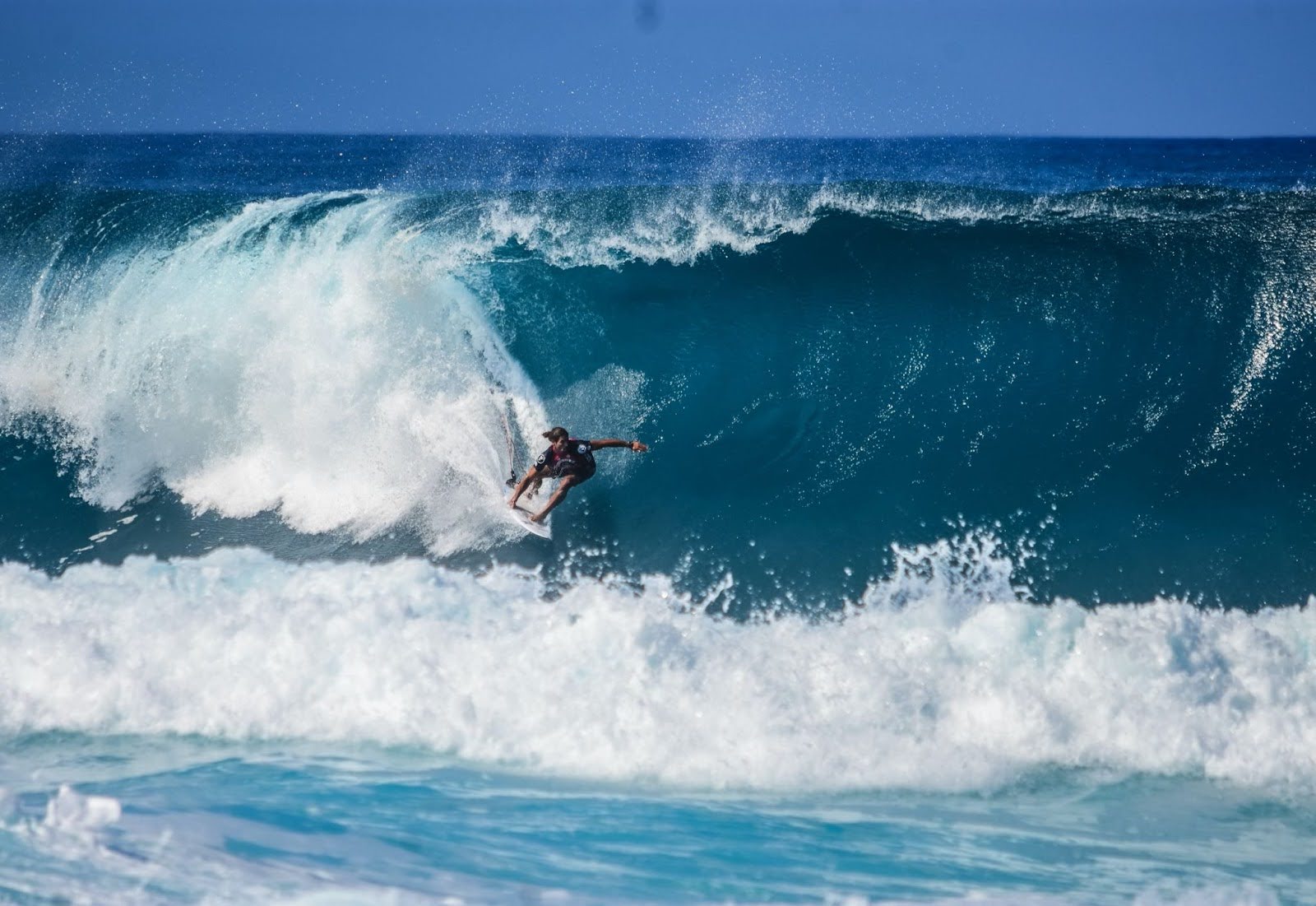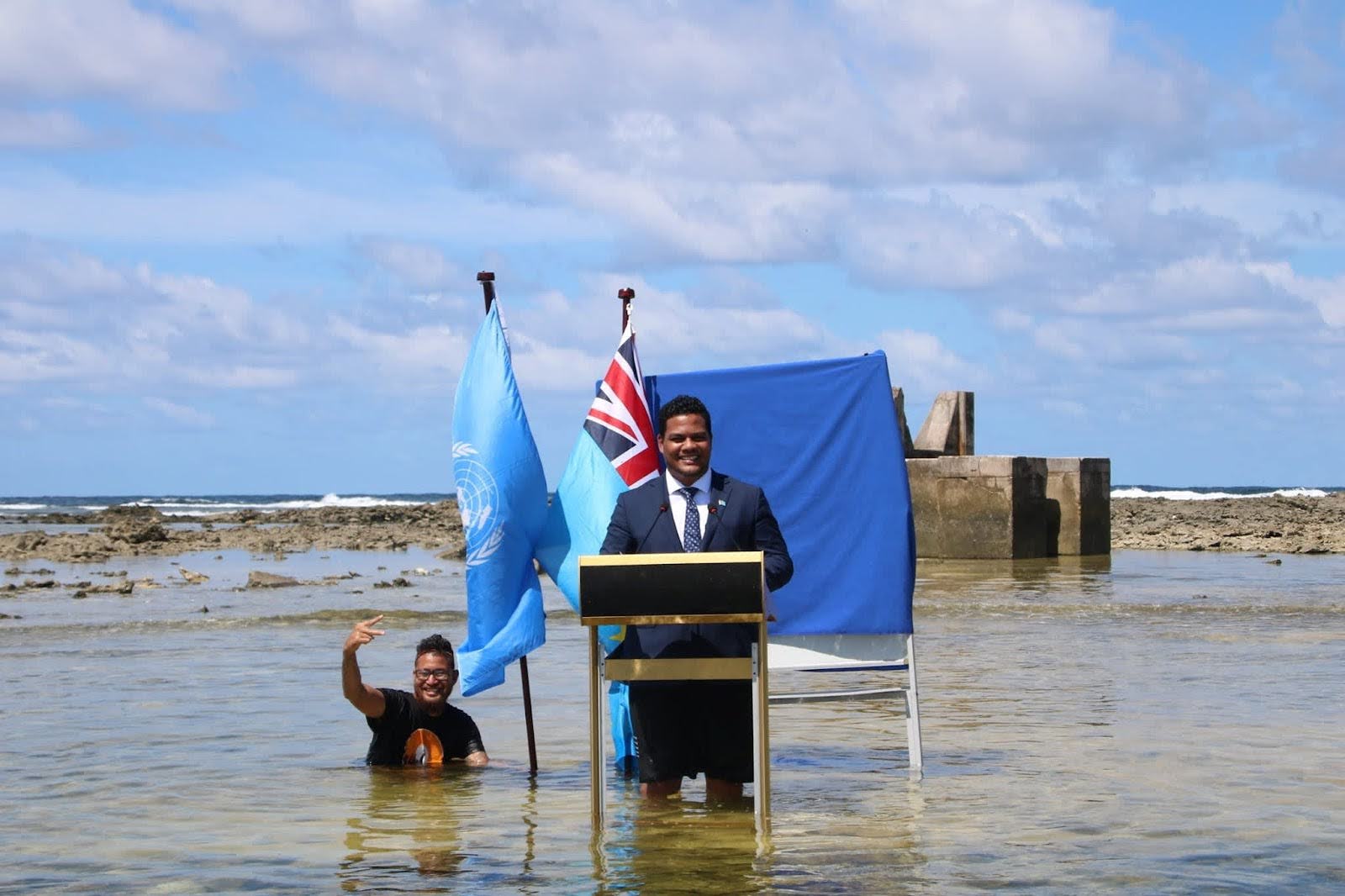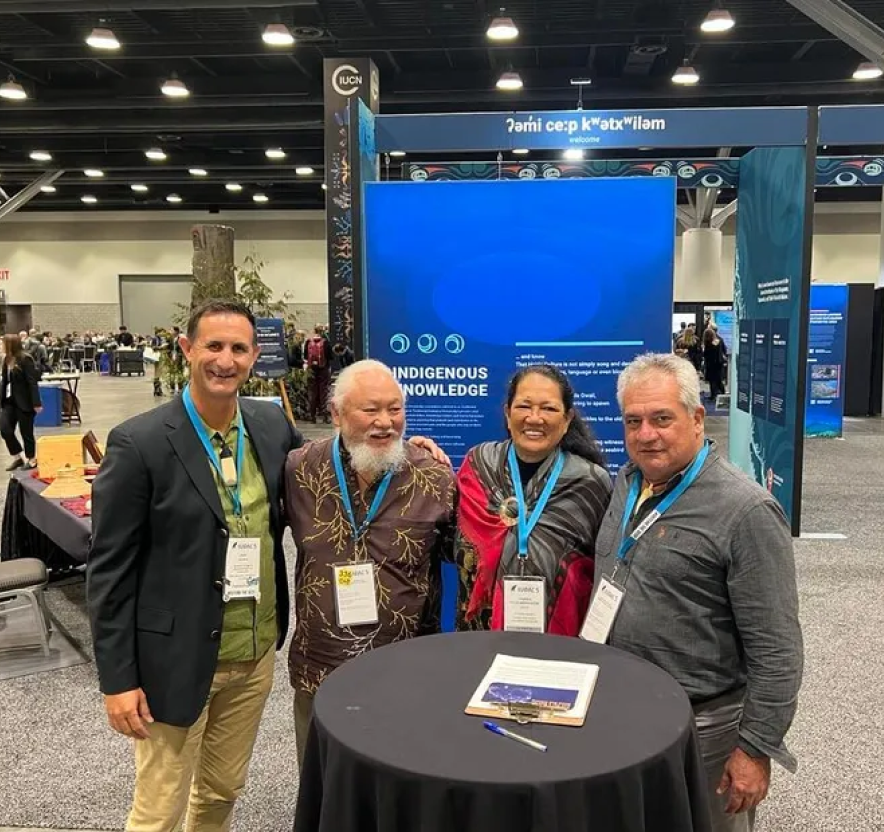Controversy over the staging of the 2024 Olympic surfing events in Teahupoo, Tahiti, intensified this weekend after corals were damaged during construction work on a new judges' tower .
The president of French Polynesia, Moetai Brotherson, canceled his official visit to the site scheduled for Saturday and suspended work which was to begin on Monday. He also joined those opposed to organizing the event in the water, to respect the "mana", the sacred force, of the site.
Environmental defenders have denounced the work, which could have harmful consequences on the Teahupoo coral reef, one of the most beautiful and dangerous in the world.
“We could hear the cracking of the corals breaking under the barge and the propellers of the engines,” said Astrid Drollet, secretary of the Vai Ara o Teahupoo association. "It made us angry and saddened. We had warned them."
The International Surfing Association (ISA) protest in San Diego on Sunday also highlighted the controversy.
“Don’t concrete the coral reef,” we could read on the demonstrators’ signs.
The organizers of the competition revised their copy in mid-November, with a project for a lightweight aluminum tower in order to “limit environmental damage as much as possible”.
But Friday's incident reignited the controversy.
“Today we broke some coral,” Moetai Brotherson told local television station TNTV. “If, in the end, there is no solution since we will no longer be able to reuse the old foundations [nor] the old tower, we will have to ask ourselves the question of the sustainability of the surfing events at Teahupoo ."
In reality, what happens next may be complicated. Teahupoo is the only site to have applied to host the competition next summer and it is hard to imagine how the Olympic Organizing Committee could decide to simply cancel an event.
Questioned on Friday by the Reuters agency, Cojo explained that he wanted “more than ever” to continue the dialogue with surfers and NGOs.







